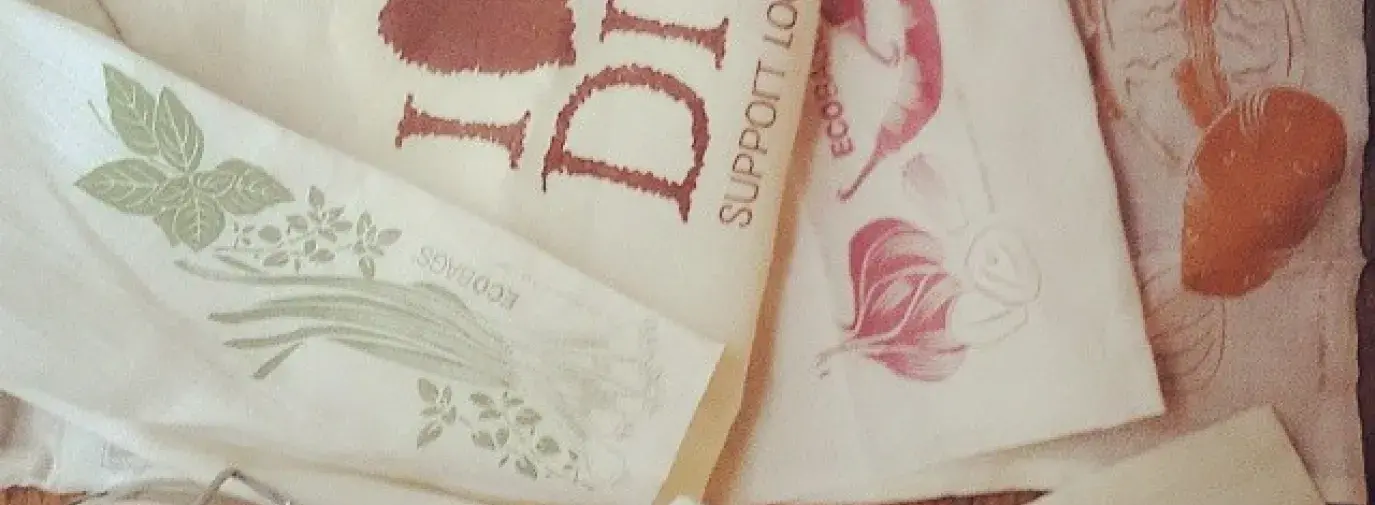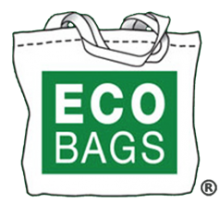
Contact Ego-Bags Products: Website | Facebook | Instagram | Twitter
Thirty years ago, in 1989, Sharon Rowe was walking through Washington Heights in Manhattan, where she saw plastic bags everywhere, stuck in nearby trees or tumbling on the ground. Rowe was struck by the waste, since the bags are not sustainable nor reusable. Plus, she knew her sightings weren’t rare—a quick look around told her that across the city, plastic bags often wound up in gutters, trees, the Hudson River, or in the garbage. Her desire to curb the waste led her to create her own online store, featuring a line of reusable bags for nearly every purpose: Eco-Bags Products, Inc.
Plastic bags are made from petroleum, a non- renewable resource that contributes to global warming. These flimsy, single-use bags also take a lot of energy to manufacture and transport across the country.They do not break down in landfill sites and are difficult to recycle. In addition, their lightweight nature means they’re prone to blowing around recycling facilities, where they can contaminate entire batches of recycling.
Back in the ’80s, few people brought their own shopping bags to the store in the US. But Rowe had seen shoppers in Europe using stretchable string bags to transport their groceries, and she felt she could start a trend in the US.
Rowe started importing and selling those string bags in a street booth at the 1990 Earth Day Celebration in New York, where she encouraged people to opt for reusable shopping bags over wasteful paper and plastic. The bags were an instant hit and sold out in four hours.
Knowing that there was demand for reusable bags, Rowe launched Eco-Bags Products online.At the time, Rowe says very few companies offered any type of reusable shopping bag, much less eco-friendly and socially responsible bags, but she was determined that her company would be deep green.
“We rode the way,” Rowe says. “We literally pioneered the market.”
In addition to the ECOBAGS® Classic String Bags, she offered organic cotton tote bags before organic products had really taken off in the market.
“We realized the environmental significance of using certified organic cotton in 1996,” Rowe says, citing organic cotton’s environmental benefits, like fewer pesticides and healthier soil and workers.
Today, it’s much more common to see shoppers toting their own reusable bags to the store than it was in 1989.
“The concept of bringing your own bag to the store has really grown,” she says. “Now, the BYOB movement is strong and mainstream.” Thanks to this increased demand, the company now offers a variety of bags in a wide range of styles and sizes—from whisper-thin produce bags to full-size totes in recycled, organic, and conventional fibers to bags for lunch, travel, and wine.
It continues to sell the original string bag in several colors. Customers can also purchase blank totes and take advantage of the company’s custom printing services. The inks used on the printing bags and the dyes are nontoxic.
From Eco-Bags Products’ beginnings, Rowe has ensured that all of her bags are responsibly sourced.The company’s primary production partners are in India, so Rowe travels there regularly and has formed a relationship with her suppliers over the years to ensure that all workers earn a living wage and receive health coverage, retirement benefits, and a pension plan. In addition, her organic-fiber supply chain is certified for environmental and social responsibility through GOTS, and the supply chain for conventional and recycled fibers is certified through SA-8000.
The company sells its bags all over the world, including Iceland, Norway, and Korea, in addition to US orders. It has worked with a wide range of buyers on high- volume, wholesale, and private-label orders, from natural brands to Fortune 500 companies. ECOBAGS totes have been featured on the first Oprah Winfrey Show Earth Day segment, on MarthaStewart.com, and in Time Magazine.
While Rowe acknowledges that her products are competitively priced, she says her company is not all about profit, but about getting people to change the way we shop and what we put into the bags. Rowe hopes to set an example for other businesses around the world that “you can start a business and do good,” she says.
To further that mission, coming May 2018 is her new book The Magic of Tiny Business (Berrett-Koehler Publishers), in which she celebrates her success and offers guidance to others on building a “right-sized, profitable, and sustainable business.”
As for her business, Rowe says it’s special because the staff shares a set of core values and never departs from them. “We want to solve problems without adding any harm,” she says. “We work really hard to stay true to our core values.”


